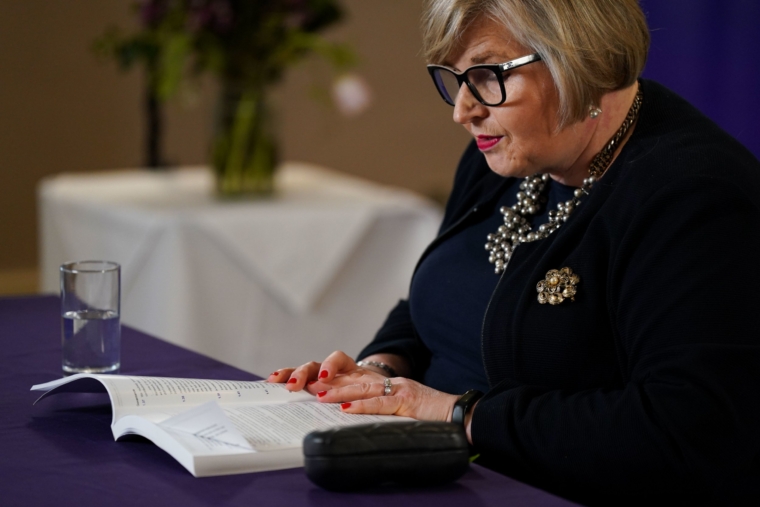Are women attending NHS hospitals in England safe in childbirth? Not at the moment according to the senior midwife who uncovered the health service’s worst maternity scandal.
Donna Ockenden gave her verdict this week after she published her review into multiple failings over a 20-year period at Shrewsbury and Telford NHS Trust. She identified 1,592 cases between 2000 and 2019 that left women and babies dead, disabled or traumatised, and said it was “not unique”.
Maternity scandals are not new to the NHS. Similar stories emerged from a 2015 inquiry into maternity services at Furness general hospital in Morecambe Bay, where major care failures were linked to at least 12 deaths of mothers and babies at the hospital between 2004 and 2012. Inquiries into maternity services in Nottingham and East Kent are currently under way suggesting lessons are not being learned.
The Department of Health and Social Care (DHSC) said the NHS is investing £127m in maternity services in the next year, to help increase the maternity NHS workforce and improve neonatal care. “This is on top of £95 million invested into the recruitment of 1,200 midwives and 100 consultant obstetricians,” the spokesman said.
The problem, however, is that the Royal College of Gynaecologists and Obstetricians has said the UK is short of 500 obstetricians while the Royal College of Midwives says we are short of more than 2,000 midwives – with staff leaving faster than they can be recruited.
When asked by i how long it will take to recruit the extra 1,200 midwives a DHSC spokesman said “a couple of years”. But latest NHS workforce figures show the number of midwives in England has actually fallen by 353 over the last 12 months, down to 22,172 in January.
Both Royal Colleges acknowledge staffing issues will not be fixed overnight, but they do – as a matter of urgency – want the Government to produce a comprehensive long-term NHS workforce strategy which sets out a roadmap to get the right numbers of staff in maternity wards across the country.
Four in 10 NHS maternity wards in England are rated inadequate or requires improvement, meaning they do not meet safety standards.
There is also little point in having such important reviews without their vital recommendations from being implemented as soon as possible, if not immediately. Ms Ockenden published an interim report, covering the first 250 cases, in December 2020 after the scale of what her team was dealing with became apparent – yet some of the recommendations outlined two years ago have yet to be implemented either.

RCOG president Dr Edward Morris told i this week he wanted to reassure women that “the NHS is one of the safest places to give birth in the world”. The latest figures do support that: of the 2,173,810 women who gave birth in 2017-2019, 191 died during or up to six weeks after pregnancy, and 495 during or up to one year after their pregnancy.
However, problems remain. According to the Oxford Population Health research team, the findings reflect how pregnant women are being put at greater risk due to clinicians focusing on their pregnancy, rather than the woman’s own health. Whenever another NHS maternity scandal emerges, doubts over maternity care grow.
RCM chief executive Gill Walton said: “The Ockenden Review identified staffing shortages as a major issue in maternity safety, a warning echoed in many other reports. This is something we have raised for more than a decade, with three different Health Secretaries, with little or no real improvement.
“England is still more than 2,000 midwives short of where we need to be and that simply isn’t good enough. While we welcome attempts to train and recruit new midwives, this Government is doing nothing to stop the experienced and qualified ones from leaving. At the same time as demands on services and the pressures on maternity staff are rising, staff numbers are going down. Despite the often heroic work of midwives and others to try to plug the gaps, this is putting the quality of care and the safety of women and babies at risk.
“We cannot continue to rely on the incredible effort and determination of midwives, maternity support workers and their colleagues to keep services afloat. They are exhausted, fragile, and they are starting to vote with their feet and simply head for the exit door. The Ockenden report must be a turning point for our maternity services. Right now the Government is doing far too little but it is not too late to put in the investment to deliver the world class maternity care the women of this country deserve.”
One of the most shocking findings of the Ockenden report was that staff in Shrewsbury up to this week were being pressured not to talk to investigators. There remains a culture within the NHS of refusing to learn from mistakes which needs to end, otherwise more maternity scandals will emerge.

